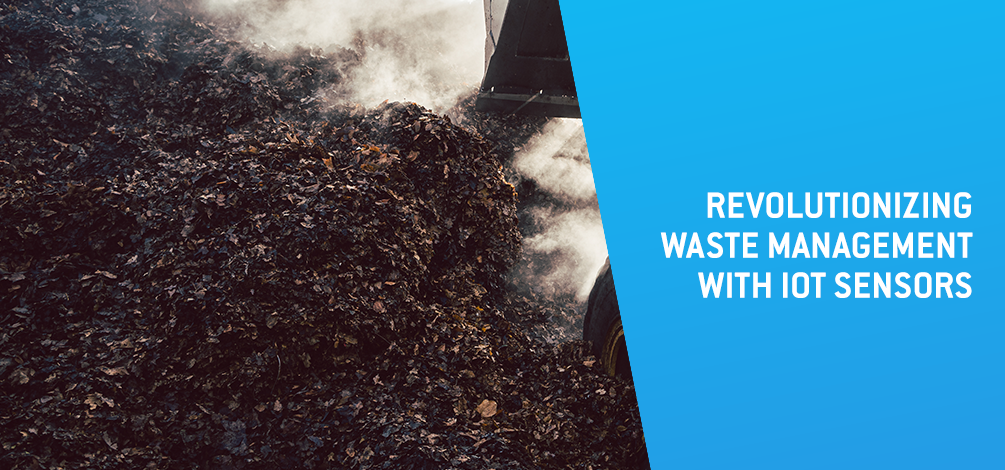Revolutionizing Waste Management with IoT Sensors

IoT technologies are powerful tools that allow smarter monitoring in waste management
Every year 2.2 billion tonnes of waste are generated in the EU, and more than a quarter of it (27%)* is municipal waste.
To reduce waste and its impact on the environment, the EU has adopted ambitious targets on recycling and landfill, requiring all municipalities to implement bio-waste separation by the end of 2023 (2018/851/EU).
The goal is to promote the shift towards a more sustainable model known as the circular economy. As a result, composting has been adopted as a sustainable waste management practice that can reduce negative environmental impacts and can be used to enrich soil and improve agricultural productivity.
The Rise of Smart Composting
To boost the efficiency and sustainability of composting processes, Internet of Things (IoT) technologies have emerged as a powerful tool, enabling better and smarter monitoring and control in waste management.
IoT sensors should be strategically placed in compost piles to collect real-time data on critical parameters to guarantee their quality. The fundamental key quality indicators that should be monitored are:
- Temperature: tracking the heat generated during composting is essential to achieve proper thermophilic conditions, which are necessary for efficient decomposition and pathogen elimination, enhancing the safety of the final compost product.
- Moisture: maintaining the right moisture content is vital to support microbial activity for successful composting.
- Oxygen: adequate oxygen concentration is crucial to avoid anaerobic conditions and promote aerobic decomposition.

By connecting these sensors to a central system, compost managers can access valuable information that can reduce the overall composting processing time and minimize the risk of failure.
Moreover, the benefits of optimizing process operations are vast, not only through the management of physical space but also through efficient time management, especially when compared to performing composting entirely manually.
IoT sensor data can also be correlated with real-time weather data to identify trends, allowing compost managers to take preventive action when extreme weather conditions are predicted.
It becomes clear that the integration of IoT technology in composting is a significant step towards a more efficient and sustainable waste management. Real-time monitoring and data-driven decision-making enable compost managers to optimize composting processes, reduce waste, and enhance environmental sustainability.

Recently, Tekon Electronics started an innovation project to develop an exclusive compost monitoring system: IoT Bio – “IoT Solution to monitor bio-residual treatment processes”.
This project aims to develop a wireless product to monitor the compost's temperature, moisture, and oxygen concentration, offering different wireless communications, powered by a solar panel, and integrating an IoT platform for data analysis.
Here are some of the highlights that make this project innovative:
- The capacity to measure the 3 parameters that ensure the compost quality;
- GSM module integration;
- Interoperability between different types of sensors, components, and the IoT Platform.
Tekon Electronics continues to reaffirm its contribution to innovation, providing competitive and distinctive solutions for a more smart and sustainable future.
Embrace the spirit of innovation with Tekon Electronics.
*European Parliament. Waste management in the EU: infographic with facts and figures.
https://www.europarl.europa.eu/news/en/headlines/society/20180328STO00751/waste-management-in-the-eu-infographic-with-facts-and-figures